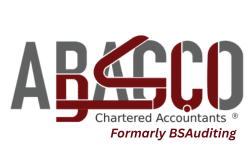Lease-Finance Business – ESR Relevant Activity and Core Income-Generating Activity
Lease-Finance Business
Lease-Finance Business encompasses licensees that offer credit or financing for any kind of consideration, and includes financing to connected persons (e.g. related parties or intra-group financing). Offering credit or financing also includes making loans to related or unrelated parties, entering into finance leases in relation to assets other than land, and providing credit in the form of hire purchase agreements, long term credit plans, and other types of financing arrangements (including cash pool arrangements).
Consideration for the purpose of a Lease-Finance Business would also include origination and processing fees, gains upon conversion of a loan into the share capital of the debtor, and late payment penalties. However, granting of security in favor of the lender does not constitute consideration. Investment in bonds or similar securities or debt instruments that are traded on a regulated exchange would not be considered a Lease-Finance Business.
Licensees that are mainly engaged in Banking, Insurance, Headquarters and Investment Fund Management Business may also perform lease or financing activities as a normal part of their business operations. To prevent duplicate reporting, such Licensees are not considered, engaged in a Lease-Finance Business and will not need to separately demonstrate economic substance in respect of any ancillary Lease-Finance activities.
Core Income-Generating Activities of a Lease-Finance Business
- Agreeing funding terms – relates to the funding of the licensee itself, and includes agreeing the type of funding, the quantum of funding, the currency, the rates of interest payable, the security given (if any), and any covenants.
- Identifying and acquiring assets to be leased – refers to the activity of identifying and verifying suitable assets to purchase and then rent to a lessee for an agreed period, including negotiating the acquisition and the terms of the supply of the assets to be leased or hired.
- Setting the terms and duration of any financing or leasing – The licensee is expected to have the authority and undertake the negotiation of the amount of financing or leasing to be provided, the financial and other terms and conditions, and the relevant legal agreements to be entered into.
- Monitoring and revising any agreements – includes obtaining data about a borrower or lessee, testing compliance against covenants, extending the duration or the changing of other terms of the financing provided, and ensuring all relevant information is fed into the decision making process and any amended financing terms.
- Managing any risks – refers to activities in relation to debt collection, monitoring and maintaining the conditions of the underlying leased assets, in the case of leasing, entering into swap and hedging arrangements, and developing and implementing strategies to reduce or spread risks.
How BSA can help you
Bader Saleh Auditing of Accounts can assess if the entities and activities are within the scope of the economic substance regulations and/or whether the entity can benefit from any of the exemptions in the Regulations.
We can carry out a gap analysis that represents the current substance and corporate governance processes against what is required under the regulations.
We can support you in the preparation and submission of your annual notifications and economic substance report to the Regulatory Authorities.
Connect with our team at +97145707357 or send us an email at info@bsauditing.com
- Accounting & Finance (45)
- Anti-money Laundering (AML/CFT) (4)
- Audit & Assurance (10)
- Blogs (8)
- Business & Finance (9)
- Business Consulting & Advisory (5)
- CFO Services (1)
- Corporate Tax (3)
- Dubai Free Zones (4)
- ERP Services (1)
- Latest News (1)
- News & Update (6)
- Odoo (1)
- Other (13)
- Risk & Compliance (2)
- Taxation & VAT (10)
- Uncategorized (5)
Recent Posts
- What are the VAT Registration Requirements in the UAE?
- What’s VAT Registration in UAE? Everything You Need to Know
- Top 7 Reasons to Outsource Your Accounting Services in 2025
- The Ultimate Guide to Business Valuation Calculation in 2025
- What Is Business Valuation and Why Does It Matter for Your Company?


